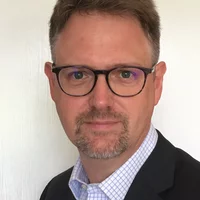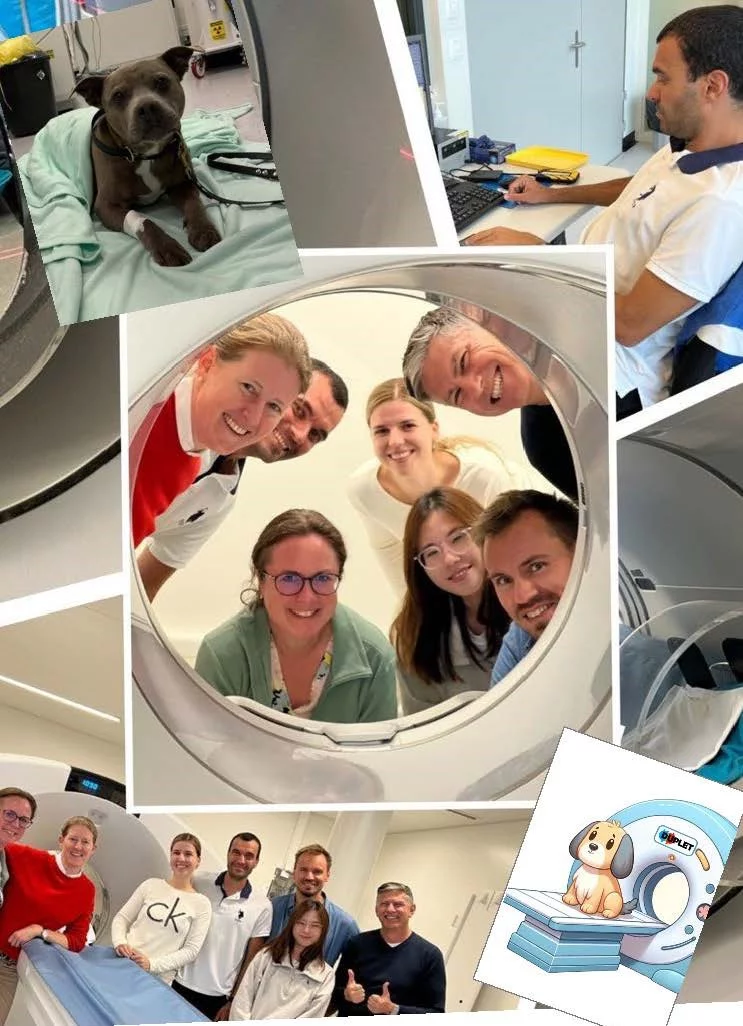What if modern medicine could select the most effective cancer treatment for each patient more precisely and faster? In 2022, Lars Gerchow received the PSI Founder Fellowship to pursue this visionary idea: the precise determination of targeted treatments for specific cancer types in metastatic cancer.
In complex cases – such as when multiple tumor types are present simultaneously – conventional imaging techniques reach their limits. Lars is therefore working on a new approach: Dual-Tracer Positron Emission Tomography (PET), which uses two different radiotracers simultaneously to visualize various tumor types in a single scan. This provides the foundation for the most effective treatment selection. Compared to the current state-of-the-art, which is not covered by health insurance, this method with two scans on different days offers reduced patient burden, significantly less effort for hospitals, and contributes to a more efficient healthcare system.
With his expertise in particle physics and the support of the PSI Founder Fellowship (PSIFF) – a program designed to foster entrepreneurial, talented scientists and engineers – Lars Gerchow has made significant progress over the past few months. In collaboration with the Radiopharmacy at PSI, ETH's Institute for Particle Physics, Unispital Zürich, Kantonsspital Baden, and the Tierspital Zürich, an important milestone was achieved: the newly developed Dual-Tracer PET method has already been successfully tested with canine patients – a win-win collaboration, as veterinary medicine has limited access to PET diagnostics for their patients. This milestone proves that the method works in clinical applications. The results provide a promising foundation for the planned human application and are a key indication that the technology works not only in the lab but also in clinical environments.
This successful application is also a prime example of what is possible when experts from diverse fields work together. Across group, department, and institutional boundaries, a collaboration has emerged that not only led to a concrete innovation but also demonstrates how much faster and more effectively we can tackle medical challenges when we break down silos. A perfect example of the synergies present in the diverse research at PSI and the potential within Switzerland’s research ecosystem.
The goal now is to further develop this technology for human use. Based on the initial results obtained through the PSIFF program, the collaboration has secured an PHRT and SNF project for its implementation. The potential to fundamentally optimize both diagnosis and treatment for patients with metastatic cancer is enormous. Lars is working intensively on a software solution that precisely analyzes raw data from the latest generation of PET scans. This now includes the fine differences in the involved tracers, a capability that was previously only possible in the facilities of basic research and particle physics. This innovation now allows the simultaneous breakdown and visualization of multiple cancer types in a single scan – a step that opens up new perspectives for personalized cancer therapy.
Lars' work is an excellent example of how innovations from particle physics can revolutionize the field of medicine and how interdisciplinary collaboration across various groups and institutes enables unique progress. We are proud to support Lars through the PSI Founder Fellowship and look forward to the next steps in this promising project.
In komplexen Fällen – etwa, wenn mehrere Tumorarten gleichzeitig vorliegen – stossen konventionelle bildgebende Verfahren an ihre Grenzen. Lars arbeitet daher an einer neuen Methode: der Dual-Tracer-Positronen-Emissions-Tomographie (PET), bei der zwei unterschiedliche Radiotracer gleichzeitig eingesetzt werden, um in einem einzigen Scan verschiedene Tumorarten sichtbar zu machen. Dies liefert die Grundlage, um die Auswahl der Therapie am effektivsten zu gestalten. Im Vergleich zum state-of-the-art, das aktuell nicht von den Krankenkassen vergütet wird, bietet diese Methode mit zwei Scans an verschiedenen Tagen eine reduzierte Belastung für den Patienten, einen deutlich geringeren Aufwand für die Krankenhäuser und trägt zu einem effizienteren Gesundheitssystem bei.
Mit seiner Expertise aus der Teilchenphysik und der Unterstützung des PSI Founder Fellowship (PSIFF) – ein Programm zur Förderung unternehmerisch denkender, talentierter Wissenschaftler und Ingenieure - hat Lars Gerchow in den letzten Monaten bedeutende Fortschritte erzielt. In Zusammenarbeit mit der Radiopharmazie am PSI und der ETH, dem Institut für Teilchenphysik an der ETH, dem Universitätsspital Zürich, dem Kantonspital Baden, und dem Tierspital Zürich wurde ein wichtiger Zwischenerfolg erreicht: die neu entwickelte Dual-Tracer-PET-Methode wurde bereits erfolgreich mit Hundepatienten getestet - eine Win-Win Zusammenarbeit, da die Tiermedizin kaum Zugang zur PET-Diagnostik für ihre Patienten hat. Dieser Meilenstein zeigt, dass die Methode in der klinischen Anwendung funktioniert. Die Ergebnisse bilden eine vielversprechende Grundlage für die geplante Anwendung beim Menschen uns sind ein wichtiger Beleg dafür, dass die Technologie nicht nur im Labor, sondern auch im klinischen Umfeld funktioniert.
Diese erfolgreiche Anwendung ist auch ein Paradebeispiel dafür, was möglich ist, wenn Expert:innen aus verschiedensten Bereichen an einem Strang ziehen. Über Gruppen-, Departements- und Institutionsgrenzen hinweg ist hier eine Kollaboration entstanden, die nicht nur eine konkrete Innovation hervorgebracht hat – sondern auch zeigt, wie viel schneller und wirksamer wir medizinischen Herausforderungen begegnen können, wenn wir Silos überwinden. Ein Paradebeispiel für das Potenzial an Synergien, das in der vielseitigen Forschung am PSI und im Standort Schweiz steckt.
Das Ziel ist nun, diese Technologie für den Einsatz bei Menschen weiterzuentwickeln. Basierend auf den ersten Ergebnissen, die im Rahmen des PSIFFs gewonnen wurden, hat die entstandene Kollaboration ein PHRT und SNF Projekt für die Umsetzung bekommen. Das Potenzial, sowohl die Diagnose als auch die Behandlung für Patienten mit metastasierendem Krebs grundlegend zu optimieren, ist enorm. Lars arbeitet intensiv an einer Softwarelösung, die die Rohdaten aus PET-Scans der neusten Generation präzise analysiert. Dabei werden nun auch feine Unterschiede der beteiligten Tracer berücksichtigt und analysiert, was bisher nur in den Anlagen der Grundlagenforschung und Teilchenphysik möglich war. Diese Innovation ermöglicht es nun, mehrere Krebsarten gleichzeitig mit einer Aufnahme in unterschiedliche Bilder aufzuschlüsseln und zu visualisieren - ein Schritt, welcher der personalisierten Krebstherapie neue Perspektiven eröffnet.
Lars’ Arbeit ist ein hervorragendes Beispiel dafür, wie Innovationen aus der Teilchenphysik die Welt der Medizin revolutionieren können und wie interdisziplinäre Arbeiten über verschiedene Gruppen und Institute einzigartige Fortschritte ermöglichen. Wir sind stolz darauf, Lars durch das PSI Founder Fellowship zu unterstützen und freuen uns auf die nächsten Schritte in diesem vielversprechenden Projekt.

